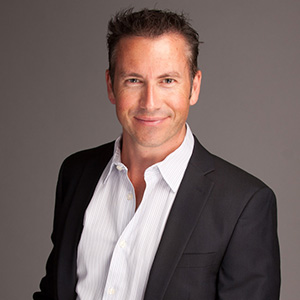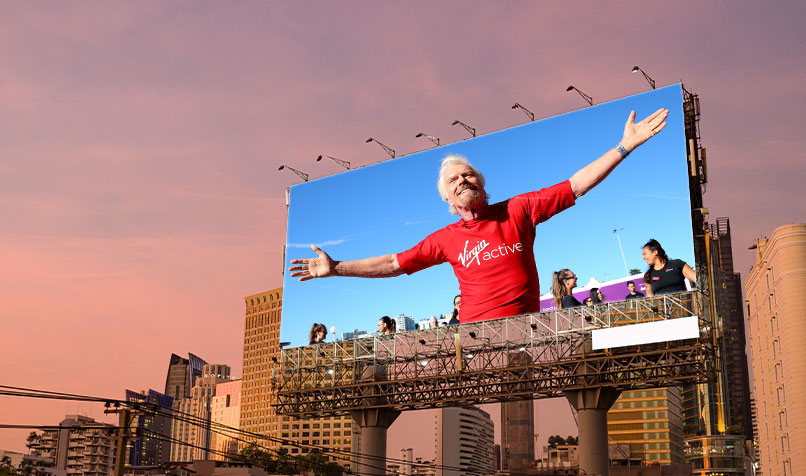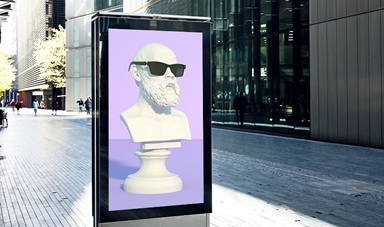Loading component...
At a glance
- A personal brand is similar to a reputation in some ways, but personal branding is more forward-looking.
- Contrary to the assumption that personal branding is about self-promotion, effective personal branding is a considered approach to presenting and communicating elements of your personality.
- What is relevant to an individual’s personal brand can change over the course of their career.
Updated 30 November 2022
Amazon CEO Jeff Bezos has been credited with saying that your personal brand is what people say about you when you’re not in the room.
While some of us may cringe at the idea of promoting our own personal “brand”, the reality is that we all have one – the question is whether the one we’ve got is the one we want.

“Everyone is a walking, talking brand,” says Rebecca Taylor, a leadership brand photography specialist.
“It’s about shaping what others say about you, so that you create the most authentic and credible representation of yourself.”
Personal branding elevates others’ understanding of who you are and what you do. It is important, because when it’s done well, it can create significant business opportunities.
On the other hand, simply ignoring it can have unforeseen downsides.
“Personal branding is optional,” says personal branding expert Andrew Ford.
“Yet if you’re doing wonderful things but not telling people, their perception of you isn’t altered, because they simply don’t know about it.
“Personal branding is getting all of those elements that are part of your personality already and just putting them all out there in a considered way, so that your stakeholders get to see it.”
Afraid of inviting others’ attention? You already have done, argues Ford – simply by having an occupation or career.
“Some people don’t want to do personal branding because it involves putting themselves out there. I would argue that anyone with customers already has, because they are in the spotlight for those people.”
Online course: Your guide to developing the best resume
Elements of a personal brand

A personal brand is made up of all the things that people think and feel about you.
“If you Google someone, [their brand is made up of] all the elements that come up, such as LinkedIn and other social media,” says Ford.
“But that’s only for people who don’t know you. Those who know you base it on every interaction you’ve had, what other people say about you and what you yourself have put on the record. That all goes into a melting pot.”
A personal brand is similar to a reputation, although the latter is more concerned with what an individual has done in the past.
A personal brand, on the other hand, can be moulded for the future, and, contrary to what some may assume, personal branding is not about self-promotion.
“Saying things like, ‘Buy my book’ or ‘Use my business’ is advertising, which creates short-term revenue opportunities, but isn’t lasting,” explains Ford.
“Building a brand is a long-term vehicle for success, and it can take years to build.”
Personal branding in an organisation

A personal brand is, of course, similar to a corporate brand, a concept with which most people are far more familiar.
When Zac McCall, account director at branding agency Percept, sits down with a corporate client, he gets as much information about the company as he possibly can.
He begins by asking questions about the company’s history, and then moves onto the service offering and future ambitions.
“The difference with personal branding and branding a business is that with the latter, you’re developing a set of values for a group of people, rather than a single person.
"The two are linked in that the leader of the company would want to espouse similar values in terms of their leadership and attitude as part of their personal brand,” he explains.
Strategic communication expert Jane Anderson says that personal branding is ultimately about showing who you are as a person.
“It’s where we bring in control when things go wrong, because your character shows up most when things go wrong.”
"You can't fake your personal brand. We don't make a brand for somebody out of thin air - we 'dig into' the person to see what's inside and then extract the brand out."
Perhaps one of the most well-known recent examples of how one’s personal brand can change is American TV personality Ellen DeGeneres.
“She seemed to have made a brand out of being a good person,” says Ford.
After hosting a wildly successful talk show for nearly two decades, DeGeneres found herself in a storm of controversy, with allegations of staff harassment and a toxic work environment. Her personal brand, and the show, suffered as the result.
Ford works with people at different stages of their career and says that what is relevant to someone’s personal brand often changes over time. Someone who is starting out in their career will be eager to become known – for all the right reasons – and will seek visibility.
“Towards the end of a person’s career, climbing the corporate ladder and earning a big salary becomes less important,” he says.
“The focus often switches to leaving a legacy.”
It must be authentic

Clearly articulated values are integral to developing a strong brand at any stage of a person’s career, or indeed for a company in its own phase of growth.
McCall recommends steering clear of generic values, such as “teamwork” or “honesty”, because they don’t help stand out in a crowded field and may even smack of insincerity.
Taylor asks clients to identify which well-known personal brands inspire them (she says that Michelle Obama and Richard Branson are among the most commonly cited).
However, in order for a personal brand to be effective, it must be authentic. Aspiration is one thing – consistency is another.
“You can’t fake your personal brand. We don’t make a brand for somebody out of thin air – we ‘dig into’ the person to see what’s inside and then extract the brand out,” says Ford.
Anderson agrees, saying, “Just be yourself, but make conscious choices about what your goals are in the next six to 12 months.
“Let’s say an accountant has the goal of working with businesses that have a turnover of A$100 million – up from the A$50 million clients they usually work with.
"That means that the branding and positioning need to look a little bit different, but you’re not suddenly having a personality transplant. It’s about aligning the messaging and connecting with the problems that A$100 million business owners tend to have.”
In Anderson’s experience, accountants tend to undervalue their expertise and play down how they can help others.
“I asked my accountant client the other day, ‘What is the most common question you are asked?’, and she told me that it’s whether someone can buy a car through their business. That is understandable, because it is quite a mark of status.
"I told her that she should write the answer as a piece of content in a blog post. She was incredulous that people would be interested to read it.”
Practical first steps to build your personal brand
Social media is an effective means of communicating your personal brand. However, Ford believes that nowadays less is actually more.
“You don’t need to be on every single social media channel. What you really need is a thoughtful way of helping a specific market.
"You almost want to be a little bit discoverable. You want to be like that restaurant that doesn’t have a huge sign outside, but people go there and then tell others about it."
Ford suggests starting out with blogging, as blog posts are straightforward to produce and cost effective.
Create regular content that will be helpful to your target market. That builds goodwill and, in turn, makes potential customers more likely to support your business.
"Identify where your ideal clients or referrers hang out. Then, get up and talk in front of them. That is where you differentiate yourself from other people - by unpacking that expertise for them."
When blogging, Anderson recommends being conscious of the way you use language.
“One thing to avoid is making it all about yourself. Don’t have too many ‘I’s’ in the content. Change your pronouns, so that they’re either removed, or where possible reframed over to ‘you’,” she says.
She also encourages everyone to use video.
“It is easy to feel like you’re being self-promotional by putting your face on things, but that’s not the case at all – the fact is that you’re dealing with people’s hard-earned money, their life savings, and they need to trust you. They want to know who they are dealing with.”
Better still, go and meet people face-to-face, she says.
“Identify where your ideal clients or referrers hang out. Then, get up and talk in front of them. That is where you differentiate yourself from other people – by unpacking that expertise for them.
"Don’t wait for them to do a Google search and hope they find you.”
Rebecca Taylor's top tips for great headshots
In many cases, first impressions of a personal brand are formed by an individual's headshot.
Rebecca Taylor suggests four tips for a distinctive headshot:
- High-quality headshots are about building trust and connection. This takes time and many touchpoints, which is why it’s a good idea to have more than one. Use different headshot styles to showcase different layers of your personality, with some images more corporate and others more relaxed.
- Choose outfits that make you feel good, because that confidence will translate into the images. Wear what you would normally wear to meet a new client. When people see you in person, there needs to be a connection with the person they saw in the photo. A mismatch can create distrust.
- Resist the urge to follow the latest trends, so the images don’t date too quickly. The chunky necklace or the bright jacket may be very fashionable now, but may be less so in six months’ time.
- Have the image background represent your personal brand. For example, if you are an innovative, forward thinker, try concrete textures or a glass reflection as your background. Try to avoid backgrounds that could be distracting.

